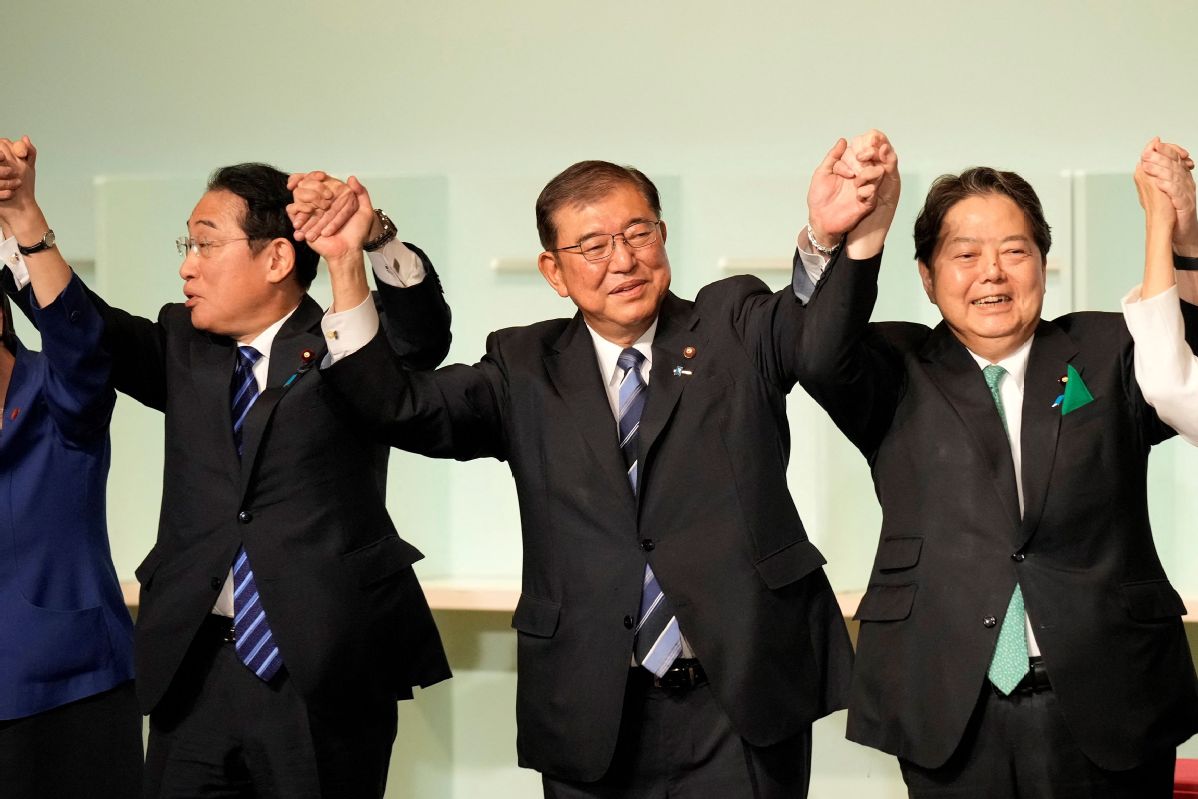Restoring trust seen as key after runoff in Japan

Shigeru Ishiba, who is expected to be Japan's next prime minister after being elected the leader of Japan's ruling Liberal Democratic Party in a runoff election on Friday, needs to lead the party in regaining public trust, according to analysts.
Ishiba, 67, a former defense minister and former LDP secretary-general, defeated Sanae Takaichi, 63, the economic security minister, by securing 215 votes to Takaichi's 194 in the one-on-one runoff.
A record nine candidates had vied for the LDP post in the party election.
Ishiba is expected to be elected as Japan's 102nd prime minister at an extraordinary Diet session to be convened on Tuesday, Jiji Press reported.
At a regular news conference on Friday, Chinese Foreign Ministry spokesman Lin Jian said that China has noted the election result, emphasizing that "it is Japan's domestic affair. The Chinese side has no comment on it."
However, Lin said that the sound, steady development of China-Japan ties in the long term is in the fundamental interests of the two peoples and is the only correct path forward.
He also expressed the hope that Japan would adopt an objective and correct understanding of China, pursue a positive and rational policy toward China, and take concrete steps to advance their mutually beneficial relationship based on common strategic interests.
Takeshi Noda, president of the Japan-China Society, said on Thursday that the primary task is to find ways to bridge differences between the two countries, and that this is a shared responsibility of the two governments. He said that Japan-China relations are currently facing one of their most challenging periods.
Yu Uchiyama, a professor at the University of Tokyo's Graduate School of Arts and Sciences and an expert on modern Japanese politics, said the next administration will face several key challenges, with the foremost issue being to address the growing distrust in politics.
"Due to the slush fund scandal, distrust in LDP politics has risen quite significantly. While reforms have taken place under the Kishida administration to a certain extent, no major overhaul has occurred," Uchiyama said during a briefing held by the Foreign Press Center Japan ahead of the election. "To regain the public's trust, a drastic renewal of LDP politics is necessary, but can the next leader of the LDP actually execute such a mission?"
Another pressing issue, Uchiyama said, is maintaining fiscal discipline. The administration of outgoing Prime Minister Fumio Kishida introduced several costly policies, including a defense buildup, the green transformation and efforts to combat the declining birthrate.
Moreover, Japan's national debt ratio is one of the highest in the world. The major question for the next prime minister will be how to secure funding for these priorities while simultaneously restoring fiscal discipline, Uchiyama said.
Earlier this week, former Japanese prime minister Yoshihiko Noda, 67, secured the leadership of the Constitutional Democratic Party of Japan. He is set to challenge the ruling LDP in the upcoming general election, as the successor to Kishida is expected to dissolve the House of Representatives, or the Lower House, and call a general election by the end of the year.
